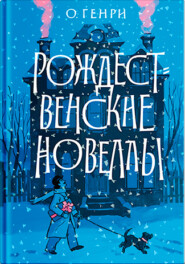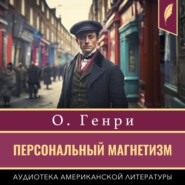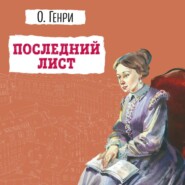По всем вопросам обращайтесь на: info@litportal.ru
(©) 2003-2024.
✖
Waifs and Strays. Part 1
Настройки чтения
Размер шрифта
Высота строк
Поля
Sam was going to ride over to the Chapman ranch to see about buying some more improved merino rams. At length he came out, ready for his ride. This being a business trip of some importance, and the Chapman ranch being almost a small town in population and size, Sam had decided to "dress up" accordingly. The result was that he had transformed himself from a graceful, picturesque frontiersman into something much less pleasing to the sight. The tight white collar awkwardly constricted his muscular, mahogany-colored neck. The buttonless shirt bulged in stiff waves beneath his unbuttoned vest. The suit of "ready-made" effectually concealed the fine lines of his straight, athletic figure. His berry-brown face was set to the melancholy dignity befitting a prisoner of state. He gave Randy, his three-year-old son, a pat on the head, and hurried out to where Mexico, his favorite saddle horse, was standing.
Marthy, leisurely rocking in her chair, fixed her place in the book with her finger, and turned her head, smiling mischievously as she noted the havoc Sam had wrought with his appearance in trying to "fix up."
"Well, ef I must say it, Sam," she drawled, "you look jest like one of them hayseeds in the picture papers, 'stead of a free and independent sheepman of the State o' Texas."
Sam climbed awkwardly into the saddle.
"You're the one ought to be 'shamed to say so," he replied hotly. "'Stead of 'tendin' to a man's clothes you're al'ays setting around a-readin' them billy-by-dam yaller-back novils."
"Oh, shet up and ride along," said Mrs. Webber, with a little jerk at the handles of her chair; "you always fussin' 'bout my readin'. I do a-plenty; and I'll read when I wanter. I live in the bresh here like a varmint, never seein' nor hearin' nothin', and what other 'musement kin I have? Not in listenin' to you talk, for it's complain, complain, one day after another. Oh, go on, Sam, and leave me in peace."
Sam gave his pony a squeeze with his knees and "shoved" down the wagon trail that connected his ranch with the old, open Government road. It was eight o'clock, and already beginning to be very warm. He should have started three hours earlier. Chapman ranch was only eighteen miles away, but there was a road for only three miles of the distance. He had ridden over there once with one of the Half-Moon cowpunchers, and he had the direction well-defined in his mind.
Sam turned off the old Government road at the split mesquite, and struck down the arroyo of the Quintanilla. Here was a narrow stretch of smiling valley, upholstered with a rich mat of green, curly mesquite grass; and Mexico consumed those few miles quickly with his long, easy lope. Again, upon reaching Wild Duck Waterhole, must he abandon well-defined ways. He turned now to his right up a little hill, pebble-covered, upon which grew only the tenacious and thorny prickly pear and chaparral. At the summit of this he paused to take his last general view of the landscape for, from now on, he must wind through brakes and thickets of chaparral, pear, and mesquite, for the most part seeing scarcely farther than twenty yards in any direction, choosing his way by the prairie-dweller's instinct, guided only by an occasional glimpse of a far distant hilltop, a peculiarly shaped knot of trees, or the position of the sun.
Sam rode down the sloping hill and plunged into the great pear flat that lies between the Quintanilla and the Piedra.
In about two hours he discovered that he was lost. Then came the usual confusion of mind and the hurry to get somewhere. Mexico was anxious to redeem the situation, twisting with alacrity along the tortuous labyrinths of the jungle. At the moment his master's sureness of the route had failed his horse had divined the fact. There were no hills now that they could climb to obtain a view of the country. They came upon a few, but so dense and interlaced was the brush that scarcely could a rabbit penetrate the mass. They were in the great, lonely thicket of the Frio bottoms.
It was a mere nothing for a cattleman or a sheepman to be lost for a day or a night. The thing often happened. It was merely a matter of missing a meal or two and sleeping comfortably on your saddle blankets on a soft mattress of mesquite grass. But in Sam's case it was different. He had never been away from his ranch at night. Marthy was afraid of the country – afraid of Mexicans, of snakes, of panthers, even of sheep. So he had never left her alone.
It must have been about four in the afternoon when Sam's conscience awoke. He was limp and drenched, rather from anxiety than the heat or fatigue. Until now he had been hoping to strike the trail that led to the Frio crossing and the Chapman ranch. He must have crossed it at some dim part of it and ridden beyond. If so he was now something like fifty miles from home. If he could strike a ranch – a camp – any place where he could get a fresh horse and inquire the road, he would ride all night to get back to Marthy and the kid.
So, I have hinted, Sam was seized by remorse. There was a big lump in his throat as he thought of the cross words he had spoken to his wife. Surely it was hard enough for her to live in that horrible country without having to bear the burden of his abuse. He cursed himself grimly, and felt a sudden flush of shame that over-glowed the summer heat as he remembered the many times he had flouted and railed at her because she had a liking for reading fiction.
"Ther only so'ce ov amusement ther po' gal's got," said Sam aloud, with a sob, which unaccustomed sound caused Mexico to shy a bit. "A-livin' with a sore-headed kiote like me – a low-down skunk that ought to be licked to death with a saddle cinch – a-cookin' and a-washin' and a-livin' on mutton and beans and me abusin' her fur takin' a squint or two in a little book!"
He thought of Marthy as she had been when he first met her in Dogtown – smart, pretty, and saucy – before the sun had turned the roses in her cheeks brown and the silence of the chaparral had tamed her ambitions.
"Ef I ever speaks another hard word to ther little gal," muttered Sam, "or fails in the love and affection that's coming to her in the deal, I hopes a wildcat'll t'ar me to pieces."
He knew what he would do. He would write to Garcia & Jones, his San Antonio merchants where he bought his supplies and sold his wool, and have them send down a big box of novels and reading matter for Marthy. Things were going to be different. He wondered whether a little piano could be placed in one of the rooms of the ranch house without the family having to move out of doors.
In nowise calculated to allay his self-reproach was the thought that Marthy and Randy would have to pass the night alone. In spite of their bickerings, when night came Marthy was wont to dismiss her fears of the country, and rest her head upon Sam's strong arm with a sigh of peaceful content and dependence. And were her fears so groundless? Sam thought of roving, marauding Mexicans, of stealthy cougars that sometimes invaded the ranches, of rattlesnakes, centipedes, and a dozen possible dangers. Marthy would be frantic with fear. Randy would cry, and call for dada to come.
Still the interminable succession of stretches of brush, cactus, and mesquite. Hollow after hollow, slope after slope – all exactly alike – all familiar by constant repetition, and yet all strange and new. If he could only arrive somewhere.
The straight line is Art. Nature moves in circles. A straightforward man is more an artificial product than a diplomatist is. Men lost in the snow travel in exact circles until they sink, exhausted, as their footprints have attested. Also, travellers in philosophy and other mental processes frequently wind up at their starting-point.
It was when Sam Webber was fullest of contrition and good resolves that Mexico, with a heavy sigh, subsided from his regular, brisk trot into a slow complacent walk. They were winding up an easy slope covered with brush ten or twelve feet high.
"I say now, Mex," demurred Sam, "this here won't do. I know you're plumb tired out, but we got ter git along. Oh, Lordy, ain't there no mo' houses in the world!" He gave Mexico a smart kick with his heels.
Mexico gave a protesting grunt as if to say: "What's the use of that, now we're so near?" He quickened his gait into a languid trot. Rounding a great clump of black chaparral he stopped short. Sam dropped the bridle reins and sat, looking into the back door of his own house, not ten yards away.
Marthy, serene and comfortable, sat in her rocking-chair before the door in the shade of the house, with her feet resting luxuriously upon the steps. Randy, who was playing with a pair of spurs on the ground, looked up for a moment at his father and went on spinning the rowels and singing a little song. Marthy turned her head lazily against the back of the chair and considered the arrivals with emotionless eyes. She held a book in her lap with her finger holding the place.
Sam shook himself queerly, like a man coming out of a dream, and slowly dismounted. He moistened his dry lips.
"I see you are still a-settin'," he said, "a-readin' of them billy-by-dam yaller-back novils."
Sam had traveled round the circle and was himself again.
THE RUBBER PLANT'S STORY
We rubber plants form the connecting link between the vegetable kingdom and the decorations of a Waldorf-Astoria scene in a Third Avenue theatre. I haven't looked up our family tree, but I believe we were raised by grafting a gum overshoe on to a 30-cent table d'hote stalk of asparagus. You take a white bulldog with a Bourke Cockran air of independence about him and a rubber plant and there you have the fauna and flora of a flat. What the shamrock is to Ireland the rubber plant is to the dweller in flats and furnished rooms. We get moved from one place to another so quickly that the only way we can get our picture taken is with a kinetoscope. We are the vagrant vine and the flitting fig tree. You know the proverb: "Where the rubber plant sits in the window the moving van draws up to the door."
We are the city equivalent to the woodbine and the honeysuckle. No other vegetable except the Pittsburg stogie can withstand as much handling as we can. When the family to which we belong moves into a flat they set us in the front window and we become lares and penates, fly-paper and the peripatetic emblem of "Home Sweet Home." We aren't as green as we look. I guess we are about what you would call the soubrettes of the conservatory. You try sitting in the front window of a $40 flat in Manhattan and looking out into the street all day, and back into the flat at night, and see whether you get wise or not – hey? Talk about the tree of knowledge of good and evil in the garden of Eden – say! suppose there had been a rubber plant there when Eve – but I was going to tell you a story.
The first thing I can remember I had only three leaves and belonged to a member of the pony ballet. I was kept in a sunny window, and was generally watered with seltzer and lemon. I had plenty of fun in those days. I got cross-eyed trying to watch the numbers of the automobiles in the street and the dates on the labels inside at the same time.
Well, then the angel that was molting for the musical comedy lost his last feather and the company broke up. The ponies trotted away and I was left in the window ownerless. The janitor gave me to a refined comedy team on the eighth floor, and in six weeks I had been set in the window of five different flats I took on experience and put out two more leaves.
Miss Carruthers, of the refined comedy team – did you ever see her cross both feet back of her neck? – gave me to a friend of hers who had made an unfortunate marriage with a man in a store. Consequently I was placed in the window of a furnished room, rent in advance, water two flights up, gas extra after ten o'clock at night. Two of my leaves withered off here. Also, I was moved from one room to another so many times that I got to liking the odor of the pipes the expressmen smoked.
I don't think I ever had so dull a time as I did with this lady. There was never anything amusing going on inside – she was devoted to her husband, and, besides leaning out the window and flirting with the iceman, she never did a thing toward breaking the monotony.
When the couple broke up they left me with the rest of their goods at a second-hand store. I was put out in front for sale along with the jobbiest lot you ever heard of being lumped into one bargain. Think of this little cornucopia of wonders, all for $1.89: Henry James's works, six talking machine records, one pair of tennis shoes, two bottles of horse radish, and a rubber plant – that was me!
One afternoon a girl came along and stopped to look at me. She had dark hair and eyes, and she looked slim, and sad around the mouth.
"Oh, oh!" she says to herself. "I never thought to see one up here."
She pulls out a little purse about as thick as one of my leaves and fingers over some small silver in it. Old Koen, always on the lockout, is ready, rubbing his hands. This girl proceeds to turn down Mr. James and the other commodities. Rubber plants or nothing is the burden of her song. And at last Koen and she come together at 39 cents, and away she goes with me in her arms.
She was a nice girl, but not my style. Too quiet and sober looking. Thinks I to myself: "I'll just about land on the fire-escape of a tenement, six stories up. And I'll spend the next six months looking at clothes on the line."
But she carried me to a nice little room only three flights up in quite a decent street. And she put me in the window, of course. And then she went to work and cooked dinner for herself. And what do you suppose she had? Bread and tea and a little dab of jam! Nothing else. Not a single lobster, nor so much as one bottle of champagne. The Carruthers comedy team had both every evening, except now and then when they took a notion for pig's knuckle and kraut.
After she had finished her dinner my new owner came to the window and leaned down close to my leaves and cried softly to herself for a while. It made me feel funny. I never knew anybody to cry that way over a rubber plant before. Of course, I've seen a few of 'em turn on the tears for what they could get out of it, but she seemed to be crying just for the pure enjoyment of it. She touched my leaves like she loved 'em, and she bent down her head and kissed each one of 'em. I guess I'm about the toughest specimen of a peripatetic orchid on earth, but I tell you it made me feel sort of queer. Home never was like that to me before. Generally I used to get chewed by poodles and have shirt-waists hung on me to dry, and get watered with coffee grounds and peroxide of hydrogen.
This girl had a piano in the room, and she used to disturb it with both hands while she made noises with her mouth for hours at a time. I suppose she was practising vocal music.
One day she seemed very much excited and kept looking at the clock. At eleven somebody knocked and she let in a stout, dark man with towsled black hair. He sat down at once at the piano and played while she sang for him. When she finished she laid one hand on her bosom and looked at him. He shook his head, and she leaned against the piano. "Two years already," she said, speaking slowly – "do you think in two more – or even longer?"
The man shook his head again. "You waste your time," he said, roughly I thought. "The voice is not there." And then he looked at her in a peculiar way. "But the voice is not everything," he went on. "You have looks. I can place you, as I told you if – "
The girl pointed to the door without saying anything, and the dark man left the room. And then she came over and cried around me again. It's a good thing I had enough rubber in me to be water-proof.
About that time somebody else knocked at the door. "Thank goodness," I said to myself. "Here's a chance to get the water-works turned off. I hope it's somebody that's game enough to stand a bird and a bottle to liven things up a little." Tell you the truth, this little girl made me tired. A rubber plant likes to see a little sport now and then. I don't suppose there's another green thing in New York that sees as much of gay life unless it's the chartreuse or the sprigs of parsley around the dish.
When the girl opens the door in steps a young chap in a traveling cap and picks her up in his arms, and she sings out "Oh, Dick!" and stays there long enough to – well, you've been a rubber plant too, sometimes, I suppose.
"Good thing!" says I to myself. "This is livelier than scales and weeping. Now there'll be something doing."
"You've got to go back with me," says the young man. "I've come two thousand miles for you. Aren't you tired of it yet. Bess? You've kept all of us waiting so long. Haven't you found out yet what is best?"
"The bubble burst only to-day," says the girl. "Come here, Dick, and see what I found the other day on the sidewalk for sale." She brings him by the hand and exhibits yours truly. "How one ever got away up here who can tell? I bought it with almost the last money I had."

















